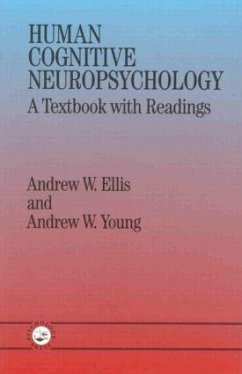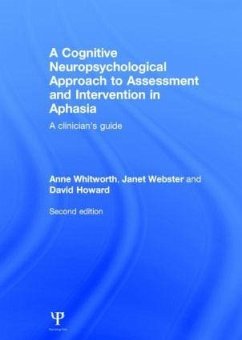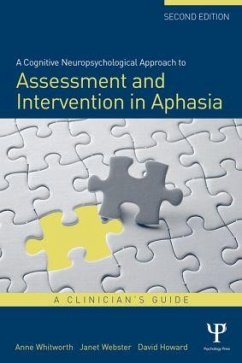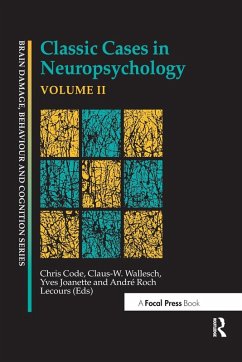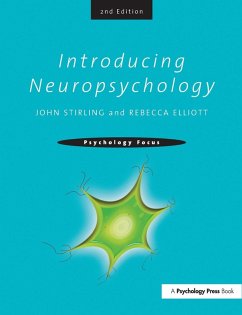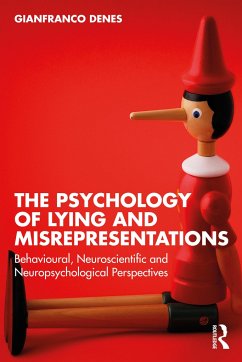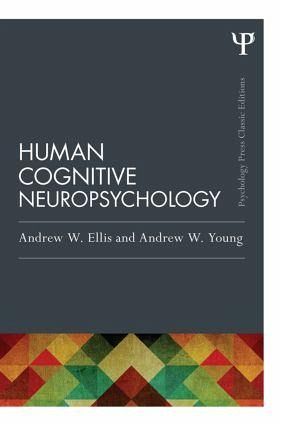
Human Cognitive Neuropsychology (Classic Edition)
Versandkostenfrei!
Versandfertig in 1-2 Wochen
67,99 €
inkl. MwSt.

PAYBACK Punkte
34 °P sammeln!
Cognitive neuropsychology seeks to understand impairments of specific cognitive functions in relation to a model of normal cognitive processing. The conclusions drawn from the study of abnormal processes are in turn used in the development and testing of theories of normal cognition. First published in 1988, this seminal book represented an attempt to synthesize and systematize progress in the study of cognitive neuropsychology and therefore provides an important snapshot of the field at the time. In addition to reviewing different forms of impairment and discussing their implications for theo...
Cognitive neuropsychology seeks to understand impairments of specific cognitive functions in relation to a model of normal cognitive processing. The conclusions drawn from the study of abnormal processes are in turn used in the development and testing of theories of normal cognition. First published in 1988, this seminal book represented an attempt to synthesize and systematize progress in the study of cognitive neuropsychology and therefore provides an important snapshot of the field at the time. In addition to reviewing different forms of impairment and discussing their implications for theories of normal function, this book also examines the empirical and theoretical foundations of the subject including the use of single-case studies and the assumptions that must be made about the mind and brain. This classic edition marks 25 years in print, and includes a brand new introduction written by the authors, Ellis and Young. The Augmented Edition of Human Cognitive Neuropsychology published in 1997 is also still available. This classic edition will be important reading for students of cognitive psychology, cognitive neuroscience and neuropsychology.





